On Wednesday 17th November, 1993, England’s national side hit rock bottom. A 7-1 World Cup qualifying victory in San Marino wasn’t enough. Graham Taylor had failed to lead his team to USA ’94. On top of that, they had conceded a goal to their minnow hosts after just 8 seconds. It was an embarrassing time to be an England fan. So much so, the BBC actually left their live coverage of the match to show the remainder of Wales’ game with Romania.
It was now only a matter of time before Taylor would either resign or be sacked. His position had become untenable. One man in the studio that night fancied the task of picking the nation up off the floor, but was too respectful to the incumbent manager to comment. When asked by Des Lynam if he would take the job, he simply said, ”I’ll tell you what I’m going to do, I’m gonna sit on the fence.”
That man was Terry Venables.
NATIONWIDE SEARCH
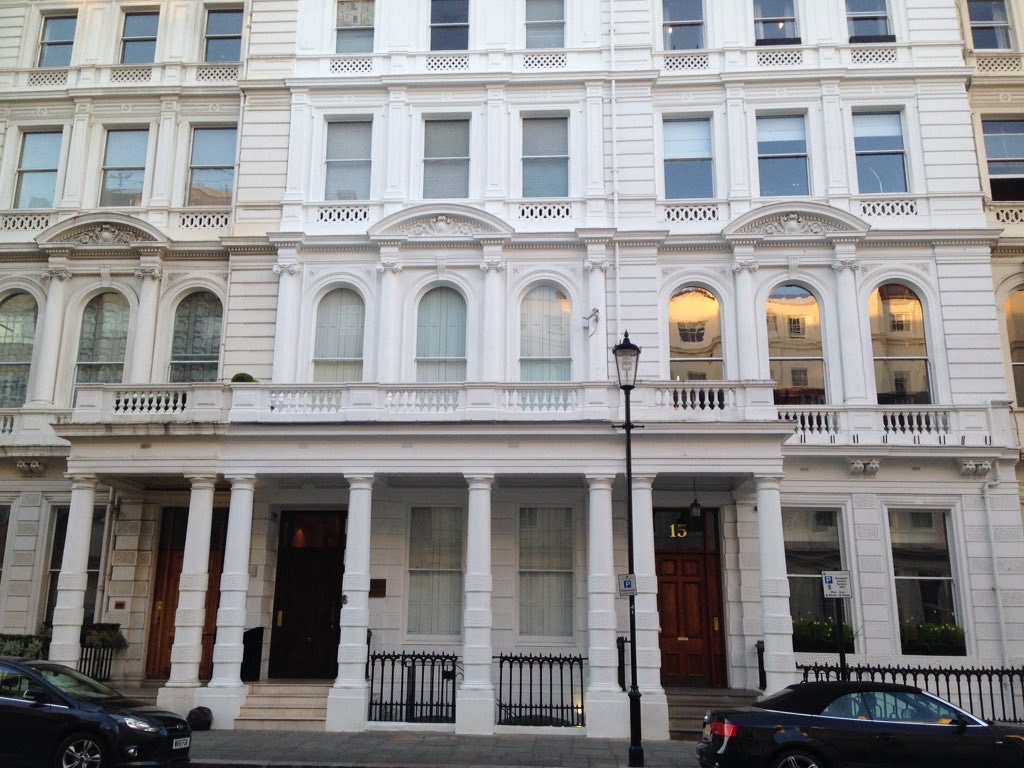
Not getting ahead of himself, Venables thought he had too much baggage to even be considered. At the time he was heavily involved in legal action with his former chairman, Alan Sugar; had a ‘Panorama’ investigation of his business affairs screened; and heard MP Kate Hoey state in Parliament that he was unfit for the job. The good-impression thermometer was reaching absolute zero. Not to mention FA chairman, Sir Bert Millichip, dismissing the idea to the press. To say Venables was hopeful would have been an overstatement.
He had been linked with it twice before. However, in both 1982 and 1990, he was never interviewed for the post. At either stage, Venables would have jumped at the chance, after all he was from an era of managers who saw the national job as an honour and a privelege.
FA Chief Executive, Graham Kelly, appointed former England defender Jimmy Armfield to lead the search for a new manager. Armfield travelled the length and breadth of the country, meeting club managers, players and directors, taking opinions on who they thought should succeed Graham Taylor. He also used his other job as a summariser on Radio 5 Live to his advantage, talking to fans at every ground he went to. One particular night Armfield was watching a cup tie at Grimsby Town and happened to mention Venables’ name to a crowd of supporters who were sat near him. They unanimously agreed that he was the right man to lead England into Euro ’96.

After 4 weeks on the road, the nation had spoken. Venables had widespread support throughout the land, so Armfield met with him to discuss the position. It was a meeting which persuaded Armfield to report back to the FA that he had found their man. Whether or not Venables’ face fitted in with the pompous old guard at Lancaster Gate, they couldn’t ignore him any longer.
Venables was invited for talks, but was still sceptical as to whether he would be offered the position. One plus point was that Graham Kelly was in his corner – a man with a big influence on most decisions within the FA. Only 9 months before Venables had clashed with the organisation over the release of his Spurs player, Nick Barmby, for an England youth tournament in Australia. So he needed all the allies he could get.
The interview went well, with Venables outlining a plan to redevelop the structure of English football. That impressed the committee of Kelly, Sir Bert Millichip, Noel White and Ian Stott. With Sir Bert now joining Kelly in warming to the interviewee, the panel were split 50/50 on his appointment. There was also the added problem of the then Manchester City chairman Peter Swales phoning the FA to say they were making a grave mistake considering Venables, despite Swales twice trying to persuade him to go to Maine Road in the past. Just before the end, they discussed the salary that might be offered. A figure of £160,000 was mentioned – only 15k more than Graham Taylor was on – probably to put Venables off as the papers were reporting that he was only after the money. To the surprise of Stott and White, the amount was accepted by Venables. He was now seriously in the frame.
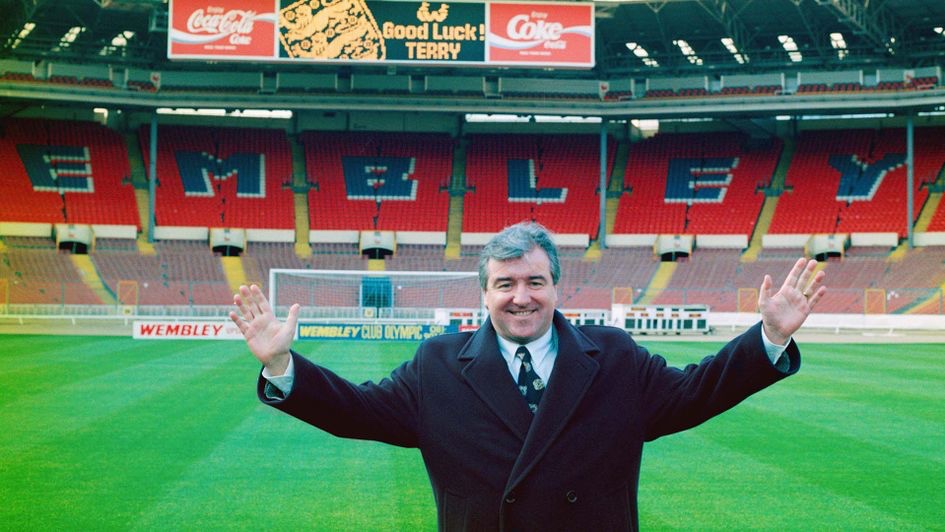
The FA took their time with the decision, meanwhile Venables had two more job offers. The first was with Wales, who had narrowly missed out on World Cup qualification themselves. His mother was Welsh and he’d spent a lot of his time in the country. The second was Nigeria, who had made USA ’94. Both offers were financially better than the England one, but Venables had played for his country and was now desperate to manage them. Just over two weeks later, he was finally offered the job. Venables accepted immediately and the nation had got their man.
FINDING THE RIGHT PIECES

Following his first press conference as boss, Venables then got to work putting together a backroom staff that would be with him all the way up to the Euros. Taking advice from former manager Ron Greenwood, it was full of people who would challenge him. To Venables, the key was to listen to the ideas of many, as he didn’t want his tenure to be a one-man show.
Don Howe was the first choice as a coach. His vast knowledge of the international scene was priceless – he had worked under both Greenwood and Bobby Robson. Dave Sexton was given the Under 21’s job, having previously won the Euros for that age group in 1982 and ’84. A first coaching role was given to Bryan Robson, who was just finishing his time at Manchester Utd. At 37, Venables knew appointing a young coach like Robson was vital, as he could also act as a link between players and management. With Mike Kelly as goalkeeping coach, Dave Butler & Alan Smith as physios, and Ted Buxton as scout, Venables had his team in place.
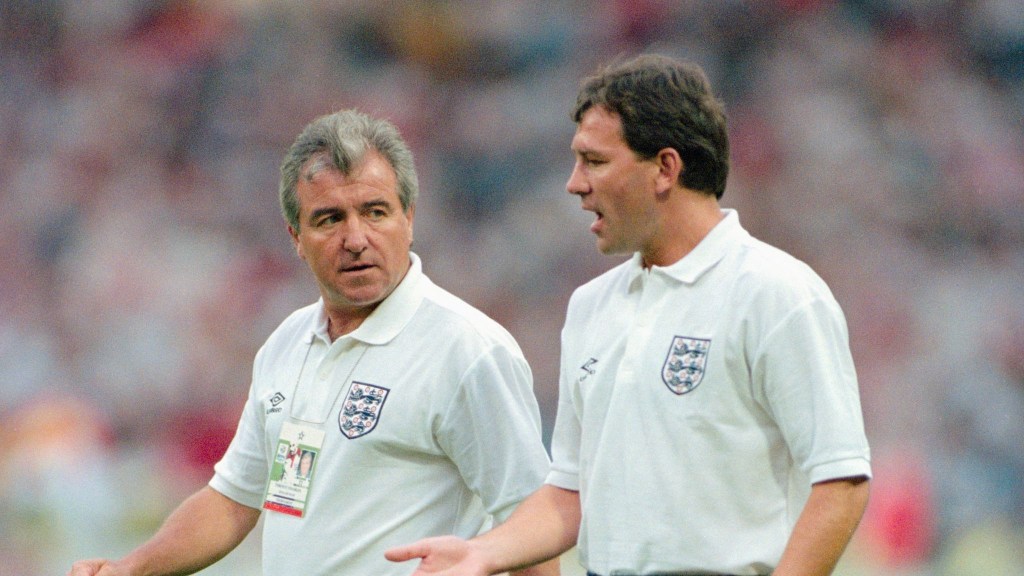
The new manager was quite open from the start with his staff on how he wanted England to play. He had always admired the Dutch style, even before the likes of Johan Cryuff came on the scene in the 1970s. So he would use that Dutch influence, mixed with the best of English traditions – a team always in attack mode, but strong and ready to defend. Howe had his reservations, unsure whether a new system of play could be understood by the players, considering the little time they got to work together during international breaks. However, with over two years until Euro ’96, Venables was adamant that this was the way forward.
El Tel also needed the players on board, so he went to see two of the most senior England internationals at the time; David Platt and Tony Adams. Venables flew out to Italy to meet Platt (then at Sampdoria) and had dinner with Adams in London. Both were very excited and full of enthusiasm. Their backing had reassured Venables to carry on with his radical changes, as any hesitation from either would’ve sent him back to the drawing board.
TWO YEARS OF FRIENDLIES
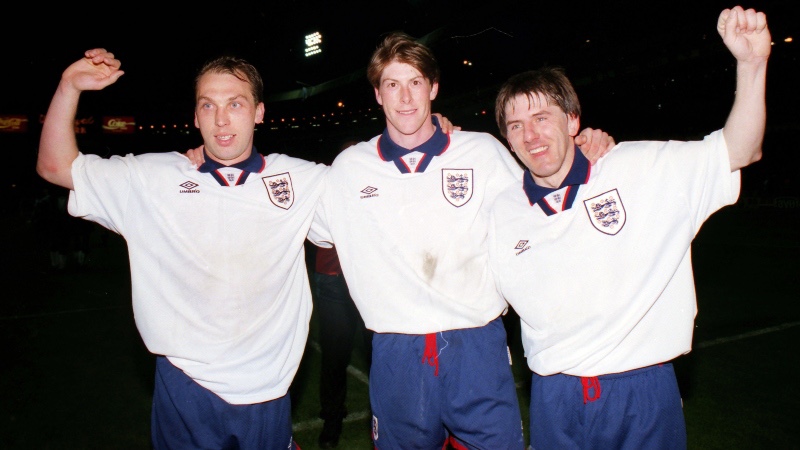
It was a position England hadn’t been in since before the 1966 World Cup. There was thirty months of non-competitive games ahead before the European Championships started – 19 friendly matches in total. Within this time Venables wanted his side to be adaptable and get used to three different formations; 4-3-2-1 (the Christmas Tree) , 3-5-2 (which could revert to 5-3-2 when needed) and 4-3-3. The first of these was used in Venables’ opening match against Denmark. The Christmas Tree system was designed to restrict the opposition unsettling you, and it worked as a David Platt goal sealed a 1-0 win. Debut starts were given to Darren Anderton and Graeme Le Saux, and Peter Beardsley was handed a first cap in 3 years. There was a feel-good atmosphere around Wembley that night, A new era had begun.
A 5-0 win over Greece and goalless draw with Norway finished off the season, as England had to spend the summer watching USA ’94 from home. The following campaign started off well with a 2-0 win against the USA. A brace from Alan Shearer being the last goals he would score for his country before the Euros began twenty-one months later. This match was also the first time we got to see the Shearer/Sheringham partnership that would turn out to be so crucial to Venables’ eventual success. Next, a 1-1 draw with Romania meant England had conceded a goal for the first time under their new manager, who now recognised he needed midfielders who could keep possession to make these systems work. He identified Paul Gascoigne and Jamie Redknapp as his front-runners, but with Gazza’s broken leg and Redknapp’s young age, Venables knew he had to bide his time before trying them out.
After the 1-0 win over Nigeria, England started the calendar year of 1995 with a match against the Republic of Ireland in Dublin. Shockingly, the game had to be abandoned with 27 mins on the clock, as England fans began rioting in the stands, throwing seats from their upper level to the tier below. The shameful scenes led Ireland manager, Jack Charlton, to claim he was ashamed to be English. It also damaged England’s reputation so much that there were rumours the European Championships could be taken away the following year. Venables was understandably distraught.
That summer, the Umbro Cup brought the season to a close – a four-team single round-robin tournament, that would be played up and down the country as a dry run for Euro ’96. England faced Japan and world champions Brazil at Wembley, with Sweden at Elland Road sandwiched in between. Unfortunately, a number of players did their best to try and avoid it, with Paul Ince being the biggest culprit. Due to a move to Inter Milan and him being a witness in the Eric Cantona kung-fu kick court case, Ince decided not to report for duty. Venables was fuming, as this was not the kind of attitude he wanted from such a key player. He saw it as an important set of matches for his England side, giving the players a small indication of what the championships would be like twelve months later. And they were playing Brazil! The manager was so unimpressed he kept Ince out of the side until the following March.
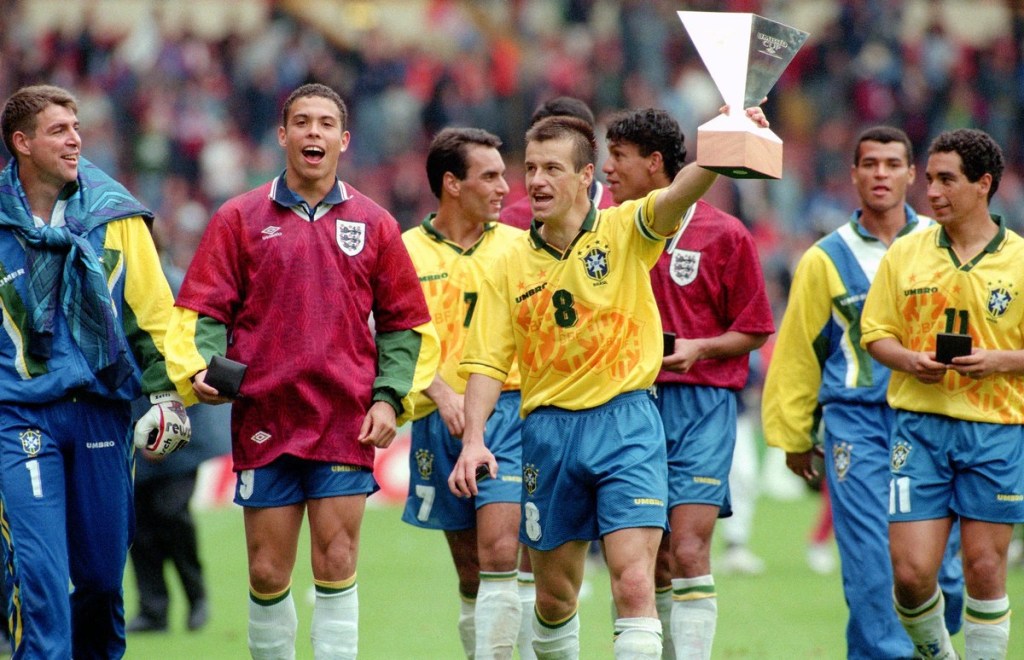
The competition itself was fairly successful for England, finishing second in the group behind the South Americans. A 2-1 win over Japan was followed by a dramatic 3-3 draw with Sweden, where the Three Lions were 3-1 down with just two minutes remaining; Darren Anderton scoring a memorable injury-time equaliser that came off both posts. Arguably the biggest match of Venables’ reign to that point came in the final group game at Wembley against the Brazilians. Graeme Le Saux scored an absolute beauty from outside the area to give England the lead at half-time, but the world champions were rampant in the second half, eventually winning 3-1. This was certainly no embarrassment for Venables, who had played an experimental side with the inexperienced pairing of John Scales and Colin Cooper in central defence. Indeed this was the only outright defeat of his two and a half years in charge.
The 1995/96 season began with a 0-0 draw at home to Colombia, which was largely overshadowed by the opposition keeper, Rene Higuta, performing his famous ‘scorpion kick.’ For Venables though, this was a first chance to start with Gascoigne and Redknapp together. Another 0-0 draw came next in Norway, before one of the best performances so far, in the 3-1 win over Switzerland – Stuart Pearce, Teddy Sheringham and Steve Stone the scorers. Along with the growing partnership between Shearer and Sheringham, youngsters like Gary Neville and Steve McManaman were now getting a good run in the side. The final match of the calendar year was a 1-1 draw against a good Portugal side at Wembley, as Steve Stone scored his second in two games to go alongside his excellent club form for Nottingham Forest. Aston Villa’s Gareth Southgate also made his debut off the bench that night, hitting the crossbar after only 5 mins on the pitch. The final squad for Euro ’96 was really taking shape now.
CONTRACT DEBACLE

Six months before the tournament was due to start, Venables had assumed he would be entering negotiations for a contract extension that would last until the 1998 World Cup in France. The qualifiers were to begin soon after the Euros, so Venables was keen to get things tied up. However, there was one man standing in his way – Noel White.
A Daily Mail article was published on the eve of the Euro ’96 draw, reporting that White was insistent that Venables should not be given an extension. On reading this the manager felt he had no choice but to leave after the summer and demanded to see the original committee who gave him the job in the first place, in person. When they met, White told Venables he was backing him, but would only offer a contract extension at the end of the Euros if England’s performance was deemed good enough. Obviously Venables felt insulted by this and couldn’t understand what White’s problem was. Here he was, nearly two years into the job, in the middle of building a young and settled side for a home tournament, with only one defeat on his record, and he didn’t even have job security after it. Seems ridiculous now looking back.
Venables confirmed he would stand down at the end of his contract. Had he waited, he almost certainly would have been offered that extension with how well the team performed. But he didn’t trust White at all now, and was certain there would’ve been another reason to block an extension anyway. In his announcement to the press, Venables stated that he would not be able to continue in the position because of his impending court cases clashing with World Cup qualifiers. This was simply not true. Even after his employers had treated him badly, he still tried to take the heat off them. That’s the measure of the man.
THE FINAL STRETCH

During these tense talks, Venables still had the draw for Euro ’96 to contend with. There’s something quite lovely about a draw for a major tournament taking place just before Christmas, and this one was no exception. Broadcast live on both BBC and ITV, and with Barry Davies describing the action, millions sat down in their festive living rooms to watch it unfold. As hosts, England were a seeded team, along with Germany, Spain, and holders Denmark. The rest were not seeded whatsoever, meaning it was a lottery who would be put with who.
England were drawn in quite a favourable group with Switzerland, Scotland and Holland – avoiding the likes of Italy, France and Portugal. All three sides in their group had an appeal to English fans. Switzerland had lost to England only the month before and had qualified under Roy Hodgson before he moved on; Scotland would meet the auld enemy once again in the most played international fixture of all time; and Holland had dumped England out of their World Cup qualification group two years earlier. Each of these matches had scores to settle. How ironic also that after modelling his new style of play on the Dutch, Venables would have to play them in the final group game.
Just four more friendly matches now stood between England and start of the championships, beginning with Bulgaria at home in March. An injury to Alan Shearer saw Newcastle’s Les Ferdinand given his chance up front, and he grabbed it with both hands, scoring the only goal in a 1-0 win. Another game at Wembley followed against Croatia, which ended 0-0. A few of Venables’ friendlies had ended in this score line, which was disappointing, but on the other hand his side were defensively sound. In fact during the 19 friendly matches leading up to the Euros, England had only conceded 10 goals, and six of those were against Sweden and Brazil.
FAR EAST TOUR

Before the pre-tournament tour of the far-east, there was one more friendly match at home with Hungary. Before this game, Venables named a squad of 27 players, of which 5 would be cut when they returned from Asia. The Hungary game was a nice and easy 3-0 victory, with Anderton getting a brace and Platt scoring the other. Three players were also given their debuts; Sol Campbell, Jason Wilcox and Ian Walker. But it was at Wembley that day where the first selection problem hit. Liverpool’s Mark Wright came off injured after just twelve minutes with a strained knee ligament, and would miss the competition. Steve Howey was called up as his replacement.
Off to China England went to play their last official friendly. This was the first chance Venables had to play Anderton and McManaman together as tireless wing-backs. Both were young, slim and could run all day, but this was a big ask from the manager. Not only were they to pile forward at every opportunity, they were also asked go all the way to full-back to protect the three-man defence. This plan was crucial if Venables was to keep adapting formations as the tournament went on. Fortunately, both players were up to the task. England won 3-0 in a very hot and humid Beijing stadium. History was also made in this match as Gary and Phil Neville became the first brothers to play together for England since Jack and Bobby Charlton.
A short stay in Hong Kong followed to play a training match against a local XI (which they won 1-0), before the players were entitled to a night out. The evening got out of hand and the newspapers were full of a select few plastered all over the front pages, namely Gascoigne, McManaman, Sheringham and Howey. In the photos, the players were blind drunk and had their shirts ripped. Plus there were rumours they had been spotted in a dentist chair as spirits were poured down their necks. Venables was furious. He had told them to be careful beforehand and couldn’t believe they would expose themselves to possible ridicule. To be fair only around 7 or 8 went out from the whole squad, the rest were tucked up in bed at the time. But Bryan Robson was in charge of the players that night, and with his track record of enjoying a drink, it was never going to end well.
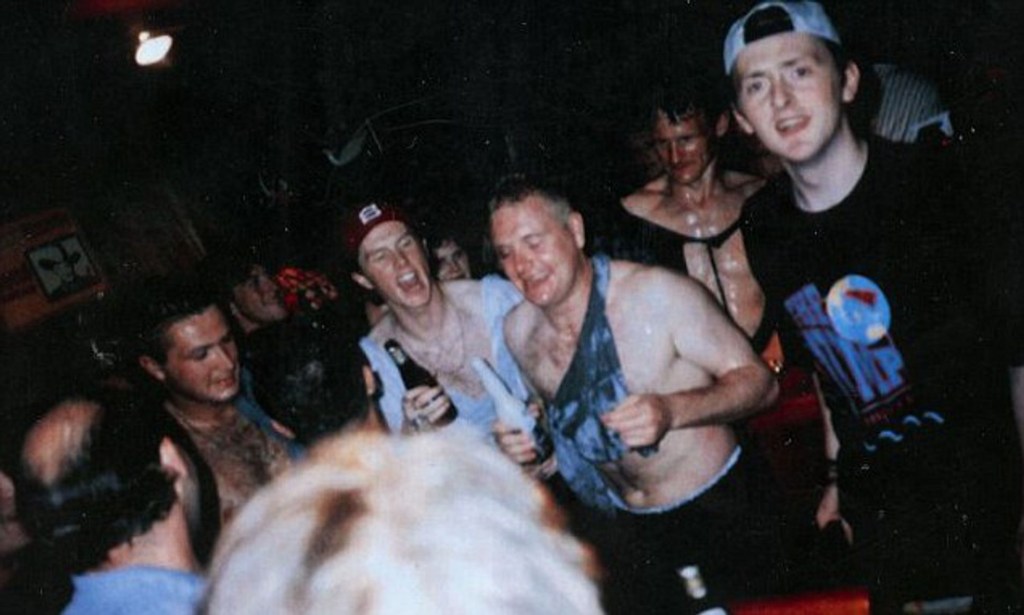
Not only this, but on the Cathay Pacific flight home from Hong Kong, there were reports of damage done to seats and television screens on the aircraft. Since then Venables has confirmed that nothing actually happened on the flight, but at the time without knowing the facts he decided that the players should take ‘collective responsiblity’ for any damage. He knew that just before England’s biggest tournament in 30 years was not the time to start throwing people under the bus. The media blamed Gascoigne for everything and were demanding that he’d be thrown out of the squad. This did nothing but make the camp a stronger unit.
Venables still had the ordeal of cutting five players from his squad. As he got back to Bisham Abbey, he told the unfortunate few. The main surprise was Peter Beardsley’s omission. After bringing him back into the fold and watching his fine form for Newcastle all season as they nearly won the Premier League, this was the hardest decision for the manager. Beardsley then retired from international football immediately. Robert Lee and Dennis Wise were also dropped, despite both being heavily involved throughout Venables’ tenure. The other two to be cut were Jason Wilcox and Ugo Ehiogu. Both only had one cap and both were young enough to go to a major championships further down the line, but this was the nearest either came to making one.
A final decision for Venables was who to make as captain. David Platt had been his first choice skipper for the past two years, but the manager realised that he wouldn’t be in his preferred starting eleven at the tournament. On the eve of the first match, Venables gave the armband to Tony Adams – a natural leader who had captained Arsenal for the previous 8 years. Platt took the news badly, but his role at the Euros would end up being as important as anyone else in the latter stages of the competition.
THE FINAL SQUAD
After two years of planning and experimenting, Venables squad for Euro ’96 read like this:
Goalkeepers: Seaman, Flowers, Walker.
Defenders: G Neville, Pearce, P Neville, Adams, Southgate, Howey, Campbell.
Midfielders: Gascoigne, Platt, Ince, Anderton, McManaman, Redknapp, Stone.
Forwards: Shearer, Sheringham, Ferdinand, Fowler, Barmby.
This wasn’t far off the perfect squad for Venables. He’s been quite open since that three other players would’ve made it had they not been injured. The Liverpool pairing of Mark Wright and Rob Jones, and Blackburn’s Graeme Le Saux. One can only assume that the three who’d miss out from this selection would be Steve Howey, Phil Neville and Stuart Pearce. Pearce has stated in his autobiography that Venables told him from the start he would be behind Le Saux, but his broken ankle months before meant Pearce got his chance, and boy did he take it. Can you imagine looking back on Euro ’96 now without Stuart Pearce? No, me neither.

One thing is for sure, Venables is one of only a couple of England managers who have come out of the job looking better than when they went in. He was the people’s choice when he was appointed and was even more popular when he finished. He repaid the faith of a nation and gave England a team they could be proud of once more. Those European Championships will live long in the memory, and that’s mainly down to the decisions and foresight of Terry Venables.
For more nostalgic articles and football memories, visit…
- https://stusfootballflashbacks.com
- Facebook: Stu’s Football Flashbacks
- Twitter: @stusfootyflash

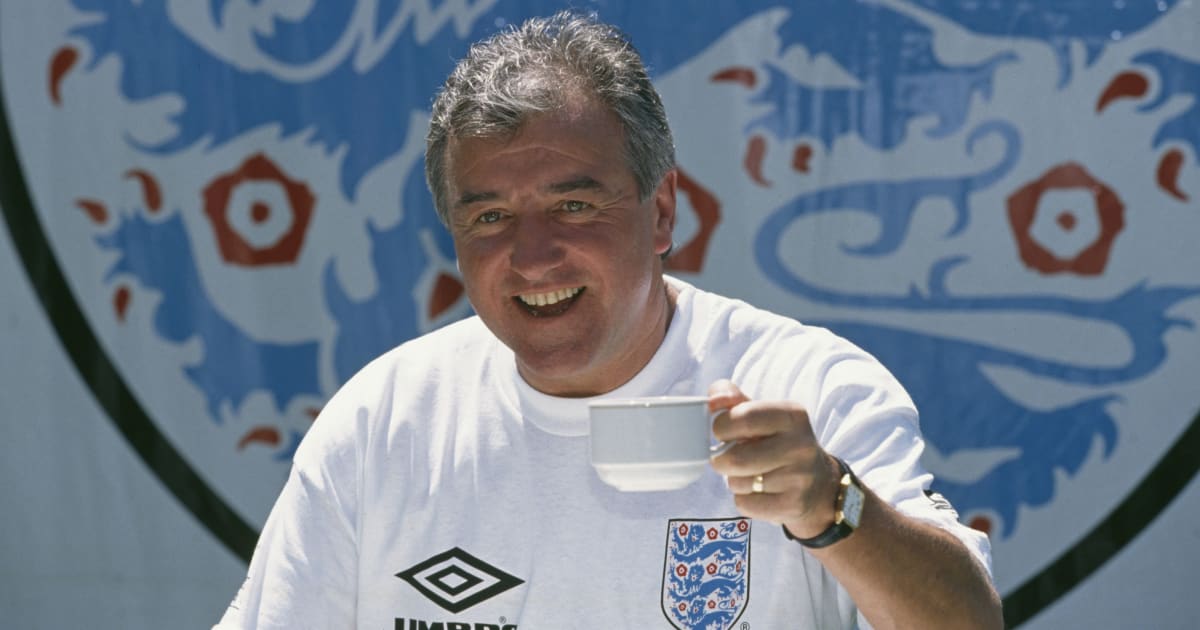


Terry Venables should have been given more credit, as he was an excellant manager, what he really needed was his players to perform to their full ability.
LikeLiked by 1 person
Very well written sir…as usual.
LikeLiked by 1 person
Enjoyed that stu. just think what could’ve happened to England if they’d just given venables a contract extension. Very good read.
LikeLiked by 1 person
Pearce is a legend. Should have took collymore and Jason Lee.
LikeLiked by 1 person
Just found your blog. Great read. Keep them coming.
LikeLiked by 1 person